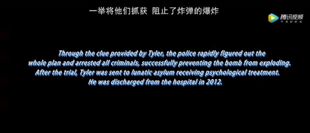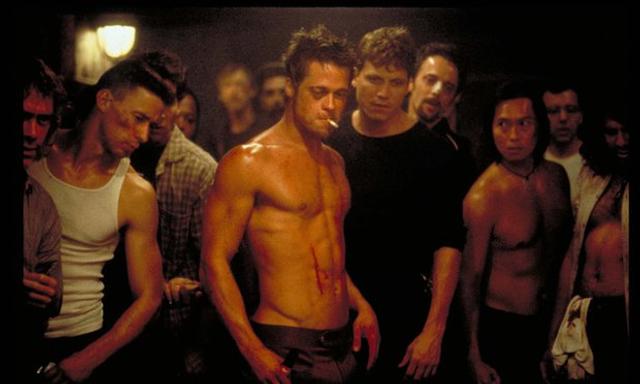The first rule of 'Fight Club'? You do not talk about 'Fight Club. Rule number two? Don't tamper with a classic!
The ending of 'Fight Club' is perhaps one of the most famous in film history: Tyler Durden's minions enact "Project Mayhem" and Edward Norton holds hands with Helena Bonham Carter as the skyscrapers around them collapse.
"Where Is My Mind" by The Pixies plays, and is perhaps the best ending director David Fincher has ever committed to celluloid.
If you were to watch the film on the Chinese streaming service TenCent Video, you are treated to a different ending which turns the famous ending into an episode of 'Captain Planet'.
Per Vice, audiences are greeted with a title card that shows that Edward Norton's Tyler Durden has his plan foiled by the authorities and "Project Mayhem" doesn't succeed.
The text shows that Tyler Durden is sent to a "lunatic asylum receiving psychological treatment" before being later discharged in 2012.

This, of course, defeats the entire point of the movie and social media users in China were quick to joke about other famous film endings that are changed by Chinese censors.
“Ocean’s 11 would have all been arrested and the entire family in 'The Godfather' would end up in jail,” one social media user joked.
Per Vice, it is unclear at this time if the ending was altered out of self-censorship or by government order, and Tencent Video declined to comment for Vice's article.
A source familiar with the matter said the film was edited by the copyright owner and then approved by the government before it was sold to streaming sites for distribution.
China has a long history of film censorship owing to the strong influence of the ruling Chinese Communist Party.
Only a certain amount of foreign-produced films are cleared for release in Chinese cinemas each year, and films that are approved for release in China are subject to strict content regulations.
The Vice article notes that Chinese-produced films would "carefully design their plots, dialogue, and casting to avoid anything that would trigger censorship, while foreign films that get approved often suffer from substantial cuts because some scenes are deemed too violent, sexually explicit, or subversive."

Owing to the socially conservative nature of the CCP, films that depict violence (such as 'Fight Club' in this instance) are often edited to depict authority figures in a positive light, and foreign films with homosexual themes such as 'Bohemian Rhapsody' or 'Call Me By Your Name' are either heavily censored, edited or outright banned from distribution in China.
In 2019 'Joker' was not approved for release in China, with critics at the time noting that the film's themes of protesting against an oppressive society would not have cleared Chinese censorship rules owing to the pro-democracy protests in Hong Kong at the time.
'Fight Club' isn't the first Brad Pitt-starring film to fall foul of Chinese censors, with the Oscar-winning star's films banned from cinematic release in China after the star appeared in the 1997 film 'Seven Years In Tibet'.




















































































